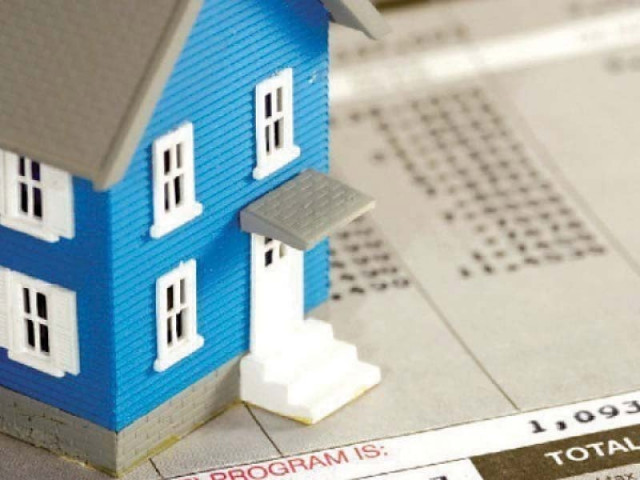Govt mulls taxing realtors’ gold mine
Planning to increase property valuation rates for entire capital city

The government may increase the property valuation rates and expand the valuations determined by the Federal Board of Revenue (FBR) across the Islamabad Capital Territory (ICT) in the upcoming budget aimed at correcting a wrong policy that hugely benefited the big realtors at the expense of national kitty.
The capital city has turned into a goldmine for the realtors but they contribute very little in taxes due to the exclusion of a majority of areas from the FBR’s valuations and the previous Pakistan Tehreek-e-Insaf (PTI) government’s decision to reduce the property valuation rates for the city.
The coalition government’ plan to revise the valuations and enforce the FBR’s rates may reverse the wrong policy of the previous political administration, which caused over one-fourth reduction in tax collection from the capital city and also eroded 44%, or Rs1.4 trillion, of land valuation.
Interestingly, the decision to bring down the valuation rates in May last year resulted in a reduction in the number of transactions by over 26%, and led to an increase in the transfer of total land, indicating that big housing projects were the beneficiaries of the PTI government’s move.
The total transactions carried out from January 2020 to January 2021 stood at 15,298, which slipped to 11,281 from May 2021 to April 2022, showed the documents. During the in-between period, the local administration made further changes to the valuation tables.
Still, the total land transferred during that period was higher than the period when the valuations had not been cut to benefit a few, showed the documents.
Sources said that Prime Minister Shehbaz Sharif had instructed that the authorities should urgently devise a plan to bring an end to the massive tax avoidance and evasion.
Low-level district administration officials were also involved in conducting informal property transactions by not formally registering those in the record.
To end all such activities, the government may decide to hand over the task of determining the property valuation rates in the ICT to the FBR from July, said the sources.
At present, there are three property valuation rates – one of the FBR that is close to market rates, second from the district administration, which is the lowest and third related to the actual market rates.
The FBR is handling property valuations for collecting federal taxes, mainly the withholding tax on transactions and capital gains tax on profits in major cities of the country.
However, its jurisdiction in the case of Islamabad is only limited to the urban areas while billions of rupees worth of transactions are taking place in the countryside, said the sources.
An internal inquiry revealed that the collection of different taxes levied on the sale and purchase of property falling in rural areas declined by Rs554 million, or nearly 24%, in one year.
Documents further revealed that the total collection of taxes levied on the transfer of property in the rural areas of the federal capital after the notification dated January 15, 2020 was Rs2.4 billion.
However, under the influence of political bigwigs belonging to the then ruling party and local land mafia, the administration reversed the DC (deputy commissioner) Valuation Table notification in May 2021 and issued fresh valuation tables.
The revised rates led to a drop in tax collection to only Rs1.8 billion from May 2021 through April 2022.
The federal capital that has the most expensive land in the country and become a goldmine for the realtors has no notified valuation table, commonly known as DC rates, even after four decades of its inception as a separate administrative unit.
Contrary to that, the provincial governments notified such valuation tables decades ago.
Due to the urban sprawl, rapid and haphazard growth of societies, no place in the capital can be categorised as a rural area, nevertheless this categorisation still exists.
The Capital Territory Administration by promulgating May 2021’s valuation table reduced the total value of land of 106 revenue estates of rural areas to Rs1.8 trillion, which was earlier fixed at Rs3.15 trillion through the January 2020’s valuation table. This hugely benefited the realty sector in tax calculations.
The rate of the entire land of Mouza Mohra Noor, where former prime minister Imran Khan’s residence is situated, was reduced by Rs42.7 billion. Similarly, the land rate of revenue estate Pind Baigwal was slashed by Rs12.2 billion, according to the documents.
In Phulgran, where many financiers of the political parties owned pieces of land, the total value was reduced by Rs165.8 billion. These few examples reflect the motives behind the revision in valuation table in May 2021, according to the sources.
The last government had also ordered an inquiry into altering the valuation table but nothing came to light.
Back then, the administration put forth a red-herring by suggesting that the valuation table was changed to increase the number of sale and purchase of property, and thus the same would be beneficial for the construction industry.
However, the documents showed that after the issuance of fresh valuation tables, the number of sale and purchase transactions declined from 15,298 to 11,281.
The new DC of Islamabad has conducted a probe into the matter and brought to fore that the decision to change the valuation tables resulted in huge tax losses and also led to lower number of transactions.
Published in The Express Tribune, June 3rd, 2022.
Like Business on Facebook, follow @TribuneBiz on Twitter to stay informed and join in the conversation.



















COMMENTS
Comments are moderated and generally will be posted if they are on-topic and not abusive.
For more information, please see our Comments FAQ